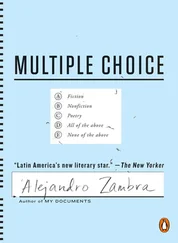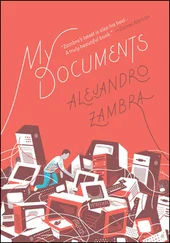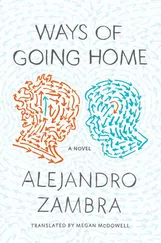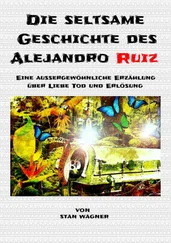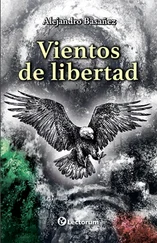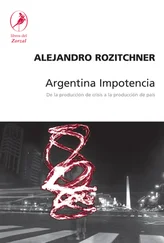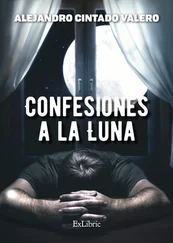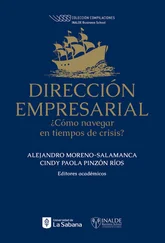Two bottles of wine and then sex. Her small wrinkles suddenly seem more visible, despite the semi-darkness of the room. Julio’s movements are sluggish, María, on the other hand, takes the reins somewhat, aware of Julio’s indecision. The tremor abates a little, now it is more of a rhythmic and even sensible shudder that naturally drives the pelvic game.
For a moment Julio lingers in María’s white hair: it feels like a fine yet incoherent cloth, immensely fragile. A cloth that must be caressed with care and love. But it is difficult to caress with care and love: Julio prefers to move down the torso and lift the dress. She runs her hand over Julio’s ears, strokes the shape of his nose, tidies his sideburns. He thinks that he should suck, not what a man would suck but rather what a woman would suck, the woman he imagines that she is imagining. But María interrupts Julio’s thoughts: Stick it in already, she says.
At eight in the morning the phone rings. Miss Silvia, from Editorial Planeta, is charging me forty thousand pesos for the transcription, Gazmuri says. I’m sorry.
Gazmuri’s dryness disconcerts him. It’s eight in the morning on a Sunday, the telephone just woke him up, the lesbian or non-lesbian or ex-lesbian sleeping at his side begins to stretch. Gazmuri has turned him down for the job, Miss Silvia, from Editorial Planeta, for forty thousand pesos, will do the job. Although María is not even awake enough to ask him who called or what time it is, Julio answers:
That was Gazmuri, it seems he’s an early riser or very anxious. He called to confirm that we’ll be starting on Bonsai this very afternoon. That’s the title of the novel: Bonsai .
What follows is something like a romance. A romance that lasts less than a year, until she goes to Madrid. María goes to Madrid because she has to go, but above all because she doesn’t have reasons to stay. All your chicks go off to Madrid, would have been the joke from Julio’s uninteresting friends, but Julio has no uninteresting friends, he has always protected himself from uninteresting friendships. Anyway, she is not the concern of this story. The story is concerned with Julio:
He never forgot her, says Julio. He went on with his life, he had children and everything, he got divorced, but he never forgot her. She was a translator, just like you, but of Japanese. They had met when both were studying Japanese, many years before. When she dies, he thinks that the best way to remember her is to grow another bonsai.
So he buys one?
No, this time he doesn’t buy it, he grows it. He gets manuals, consults with experts, sows the seeds, goes half-crazy.
María says it is a strange story.
Yes, the thing is that Gazmuri writes very well. The way I’m telling it, it seems like a strange story, even melodramatic. But I’m sure Gazmuri knew how to give it form.
The first imaginary meeting with Gazmuri takes place that very Sunday. Julio buys four Colón notebooks and spends the afternoon writing on a bench at the Parque Forestal. He writes frenetically, with feigned handwriting. At night he keeps working on Bonsai and on Monday morning he has already finished the first notebook of the novel. He smudges a few paragraphs, spills coffee, and also scatters ashes on the manuscript.
To María: It’s the greatest test for a writer. In Bonsai almost nothing happens, the plot could be told in two paragraphs, a story that perhaps is not that good.
And what are they called?
The characters? Gazmuri didn’t name them. He says it’s better, and I agree: they are He and She, Huacho and Pochocha, John and Jane Doe, they don’t have names and maybe they don’t have faces either. The protagonist is a king or beggar, it’s all the same. A king or beggar that lets go of the only woman he ever truly loved.
And he learned to speak Japanese?
They met in a Japanese class. The truth is that I don’t know yet, I think that’s in the second notebook.
In the following months Julio devotes his mornings to feigning Gazmuri’s handwriting and spends his afternoons at the computer transcribing a novel that he no longer knows to be another’s or his own, but which he has resolved to finish, finish imagining, at least. He thinks that the final text is the perfect farewell gift or the only possible gift for María. And that’s what he does, he finishes the manuscript and gives it to María.
In the days after her departure, Julio starts various urgent emails that nevertheless stay stuck in his drafts folder. Finally he decides to send her the following text:
You’ve been in my thoughts a lot. I’m sorry, but I haven’t had time to write to you. I hope you arrived well.
Gazmuri wants us to keep working together, though he won’t specify on what. I imagine it’ll be another novel. The truth is, I don’t know whether I want to keep putting up with his indecision, his cough, the way he clears his throat, his theories. I haven’t gone back to teaching Latin. I don’t have much more to tell you. The novel will be released next week. At the last minute, Gazmuri decided to entitle it Spares . I don’t think it’s a good title, that’s why I’m a little angry at Gazmuri, but, in the end, he’s the author.
Affectionately, J.
Afraid and confused, Julio headed to the Biblioteca Nacional to attend the release of Spares , Gazmuri’s real novel. From the back of the room he manages to make out the author, who nods from time to time, conveying agreement with the observations of Ebensperger, the critic overseeing the presentation. The critic moves his hands insistently to demonstrate that he’s genuinely interested in the novel. The editor, for her part, watches the behavior of the crowd, making no attempt to appear otherwise.
Julio only half-listens to the presentation: Professor Ebensperger refers to literary courage and artistic intransigence, he evokes, in passing, a book of Rilke’s, he draws on an idea from Walter Benjamin (though he does not credit the author), and he recalls a poem of Enrique Lihn’s (referring to him, simply, as Enrique) which, according to him, synthesizes the conflict of Spares to perfection: “A gravely ill man / masturbates to show signs of life.”
Before the editor can take the floor, Julio leaves the room and heads toward Providencia. Half an hour later, almost without realizing it, he has arrived at the café where he met Gazmuri. He decides to stay there, waiting for something important to happen. Meanwhile he smokes. He drinks coffee and smokes.
She died head-on, interrupting traffic.
CHICO BUARQUE
The end of this story should give us hope, but it doesn’t give us hope.
On a certain particularly long afternoon Julio decides to start two drawings. In the first one a woman appears who is María but who also is Emilia: the dark, almost black eyes of Emilia and María’s white hair; María’s ass, Emilia’s thighs, María’s feet; the back of a daughter of a right-wing intellectual; Emilia’s cheeks, María’s nose, María’s lips; Emilia’s torso and diminutive breasts; the pubis of Emilia.
The second drawing is easier in theory, but for Julio it is extremely difficult, he spends several weeks making sketches, until he arrives at the desired image:

It is a tree on a precipice.
Julio hangs both images on the bathroom mirror, as if they were recently developed photographs. And they stay there, completely covering the surface of the mirror. Julio doesn’t dare name the woman he has drawn. He calls her she. The she of he, it is understood. And he invents a story for her, a story he does not write, that he does not bother to write down.
Читать дальше


